Administrative Court Upholds Expulsion Of Iranian Teacher Activist
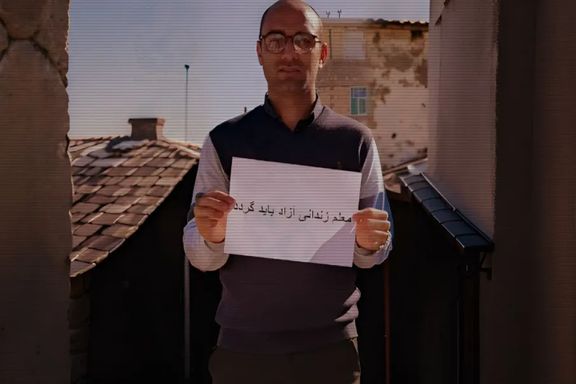
An administrative court has upheld the decision to expel Mohammad Saeidi Abou-Es’haqi, an Iranian teacher activist, from his position, amid sustained action to punish dissidents.

An administrative court has upheld the decision to expel Mohammad Saeidi Abou-Es’haqi, an Iranian teacher activist, from his position, amid sustained action to punish dissidents.
Abou-Es’haqi, an active member of the Lordegan Teachers' Union, was initially removed from his job in May 2023.
Abou-Es’haqi's expulsion was attributed to his active involvement in the 2022 anti-government protests, his solidarity with the families of government victims, and his artistic expressions through music and singing in sympathy with the protesters, alongside his participation in teachers' protests.
Iran's hardliners who control the parliament and the executive branch have been systematically replacing professional teachers and university professors with clerics and loyalists in the past one year.
Following the eruption of anti-regime protests in September 2022, security forces have been implicated in the deaths of more than 500 civilians, with hundreds more suffering severe injuries.
Numerous young protesters were also targeted with shotgun pellets, resulting in the loss of one or both eyes. Additionally, the regime detained approximately 22,000, encompassing journalists and hundreds of minors, in a widespread crackdown on dissent.
Iranian teachers have long been advocating for higher wages and pensions, highlighting their status as one of the lowest-paid classes of government employees.
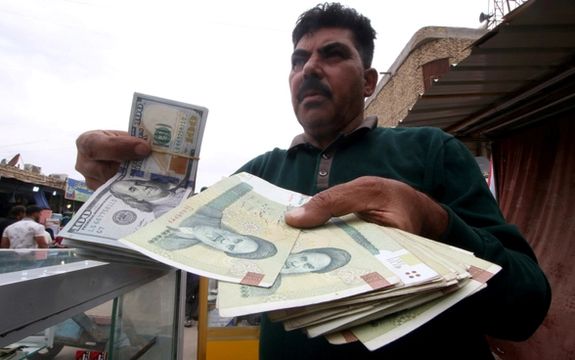
To get in line with US measures to crack down on currency smuggling to Iran, Iraq has banned eight local commercial banks from engaging in US dollar transactions.
The banks are banned from accessing the Iraqi central bank's daily dollar auction, a main source of hard currency in the import-dependent country that has become a focal point of a US crackdown.
The measure was taken to reduce fraud, money laundering and other illegal uses of the US currency days after a visit by a top US Treasury official. The measures are in line with US regulations aimed at curbing the illegal siphoning of dollars to Iran and applying pressure on Tehran along with US sanctions imposed over its nuclear program and other disputes.
As an ally to both the United States and Iran, Iraq -- holding over $100 billion in reserves in the US -- heavily depends on Washington's goodwill to ensure access to its oil revenues that are kept in US banks.
Citing an Iraqi central bank document verified by an official at the bank, Reuters said the banned banks are Ahsur International Bank for Investment; Investment Bank of Iraq; Union Bank of Iraq; Kurdistan International Islamic Bank for Investment and Development; Al Huda Bank; Al Janoob Islamic Bank for Investment and Finance; Arabia Islamic Bank and Hammurabi Commercial Bank.
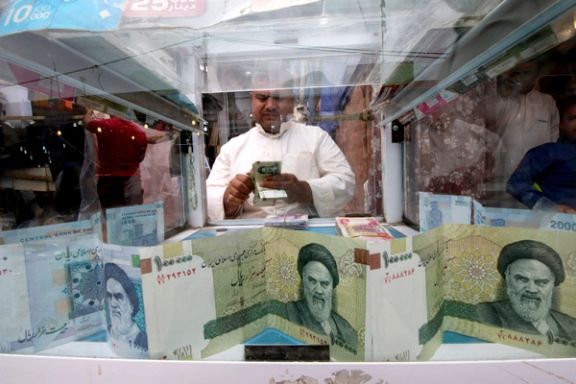
A US Treasury spokesman said, "We commend the continued steps taken by the Central Bank of Iraq to protect the Iraqi financial system from abuse, which has led to legitimate Iraqi banks achieving international connectivity through correspondent banking relationships.”
The measures to restrict Iran's access to US dollars come amid high tensions between Washington and Tehran after three US soldiers were killed on January 28 by a drome attack launched by Iranian proxy militias operating in Iraq.
In July 2023, Iraq banned 14 banks from conducting dollar transactions as part of a wider crackdown on dollar smuggling to Iran via the Iraqi banking system. The decision came after a request from Washington, according to Iraqi and US officials. The targeted banks were mostly small institutions, even by Iraqi standards. Some of these banks have ties to influential Iraqis, who are known for financial connections to Iran, or have heavy involvement in dollar transactions. The sanctions, along with previous ones on eight banks, left nearly a third of Iraq's 72 banks blacklisted, two Iraqi central bank officials said.
Last week, the US Treasury Department's top sanctions official, Brian Nelson, met top Iraqi officials in Baghdad, and discussed how to protect the Iraqi and international financial system from criminal, corrupt and terrorist actors, a tacit reference to the Islamic Republic.
During the visit, the Treasury announced action against Al-Huda Bank, saying it was involved in diverting billions of US dollars to Iranian-backed militia groups.
Reuters quoted an unnamed Treasury official as saying that Washington expected Iraq to do more to help counter Iran-backed armed groups operating out of Iraq after the killing of three US soldiers in Jordan, which has prompted US-led military strikes against Iran-linked targets in Iraq, Syria and Yemen.
Iran International revealed in May, that an aide to former IRGC’s Quds force commander Qasem Soleimani is a key figure in money laundering for Tehran. Earlier in 2023, Iran International also reported some details about the inner workings of a Quds force unit tasked with smuggling money from Iraq to Iran, demonstrating that the Islamic Republic’s embassy in Iraq is also involved in the money laundering operations aimed at funneling revenues from oil and gas exports back to Iran.
This financial network is bypassing the US sanctions at the cost of the Iraqi economy. An informed source in Baghdad told Iran International late in December that Washington has received reports Iraq is still conducting trade with Iran using US dollars despite sanctions.
The United States has insisted that oil-rich Iraq, the OPEC group's second-largest producer, moves towards self-sufficiency in energy and power generation, and has put pressure on Baghdad to stem the flow of dollars into neighboring Iran.
The Iraqi dinar went into a tailspin against the dollar after the New York Federal Reserve imposed tighter controls on international dollar transactions by commercial Iraqi banks in November 2022 to halt the illegal siphoning of dollars to Iran.
Under the curbs that took effect in January 2023, Iraqi banks were obligated to use an online platform to disclose their transaction details.
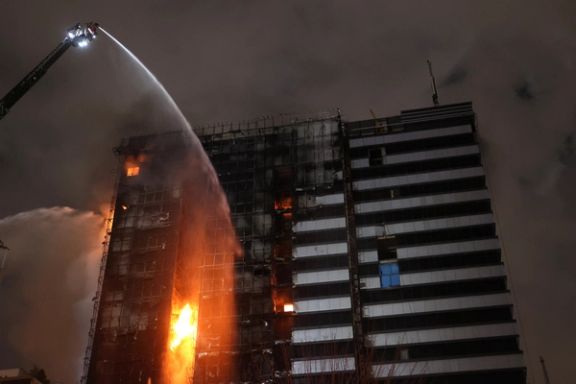
The Iranian ministry of health ministry has revoked the licenses of 100 ailing hospitals and put 250 more on probation amid patient safety concerns.
Saeed Karimi, the Deputy Health Minister, said warnings had been given. "Out of the 350 hospitals expected to take action, only 200 have complied. As a consequence, licenses for 100 hospitals, including Gandhi hospital, have not been renewed."
Speaking to ISNA, he admitted that many of the hospitals have been operating for over 25 years and are in dire need of renovation.
On January 25, a large fire broke out at Gandhi hospital, a prominent healthcare facility in northern Tehran. The blaze engulfed the building's exterior facade, prompting an evacuation of the premises. There were no immediate reports of casualties, although the cause of the fire remained unknown.
Karimi said "dealing with the situation of hospitals is a multifaceted process" amid allegations that Tehran's hospitals are unsafe. In December, Ali Nasiri, the head of the Crisis Prevention and Management Organization in the Tehran municipality, said that the capital does not have adequate infrastructure and safety measures in place for hospitals.
While Iran's critical civilian infrastructure crumbles and the population is pushed ever deeper into poverty, the regime continues to fund billions each year into its proxy militias around the region.
With the upcoming elections, turnout is expected to be almost zero as Iranians feel desperately apathetic to the prospect of change, with deepening crackdowns on women's rights, spiralling execution rates and a crumbling economy.
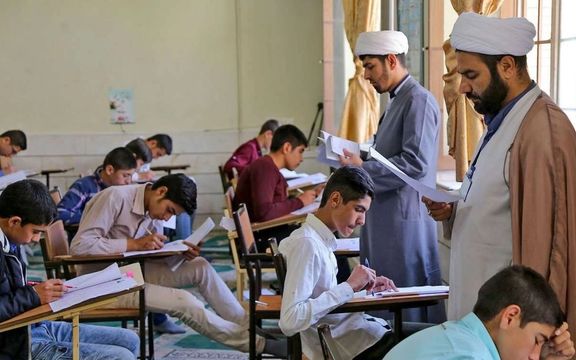
Iran's modern public education system, established in the 1930s as one of the first in the Middle East, is increasingly falling under clerical control while suffering from a lack of investments.
Over the past decade, several concerning issues have plagued Iran's public education system, attracting significant attention.
Mass recruitment of clerics in public schools, significant dropouts even in elementary and middle schools, and a sharp drop in the quality of public education. In its latest recruitment process, the Ministry of Education hired 3500 seminary students and clerics without any training. Already, tens of thousands of seminary students and clerics were employed in this ministry.
According to Shahla Kazmipour, a demographer in Iran, 30 percent of male teenagers aged 15 to 18 have dropped out of schools and only half school-aged male teenagers are enrolled.
A report on students' average grades from 2019 to 2023 showed a decline in the GPA across all fields, particularly in experimental sciences, mathematics, physics, and Islamic knowledge. This drop in educational quality has been a consistent trend over the past 45 years.
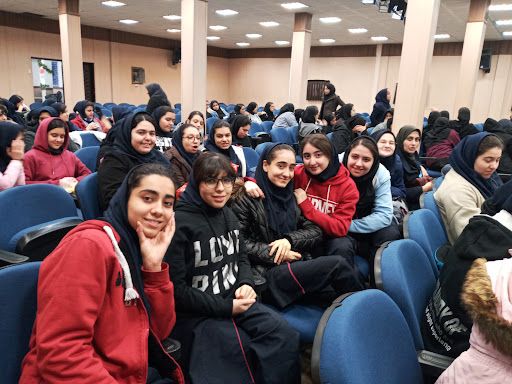
Of course, this drop is not limited to this time period. Iran's public education has experienced a continuous decline in scores in the last 45 years despite the lowering of standards. How can we explain this drop during the Islamic Republic era?
Three fundamental reasons
The three main and fundamental reasons for this decline are 1) the sharp decrease in per capita investment and spending in public education year by year, 2) an increasing class divide in society has led to children from the ruling class attending private schools, leaving public education with fewer resources and less competition. 3) widespread poverty and high unemployment rates have strained family resources, making it difficult for many households to invest in their children's education.
The Ministry of Education had 971,000 staff and 38,000 retirees in 2023. The budget of this ministry was about 2.7 trillion rials or about $4 billion. Considering the population of 16,700,000 students in the country, the budget per student was about 12.4 million tomans, which was $250 per capita per year. In comparison, European countries, the US, and Canada allocated between $8,000 and $20,000 per student in 2019.
Furthermore, income inequality has widened in Iran, with public schools providing low-quality education for low-income families. Over 70% of top-ranking students in university entrance exams come from non-government schools, which only account for 13% of students.
Despite the government's denial of poverty statistics, approximately 90% of Iranians receive living subsidies, indicating widespread economic challenges. Moreover, unemployment affects about 53% of Iranians aged 15 to 65, rendering the official unemployment rate of 7.6% questionable. In such circumstances, families often reduce family sizes or cut "non-essential" expenses, including education.
Four security-political concerns
Instead of addressing the underlying causes of decline in the education system, the authorities have been inserting clerics and Basij members into the school staff based on four false perceptions: 1) brainwashing instead of civil education, 2) ideological and political indoctrination instead of teaching sciences and skills, 3) preventing student protests by having loyal people in the schools’ staff and supervisors, and 4) keeping the clerics and Basij members loyal by giving them public jobs.
This totalitarian approach can hardly succeed in Iran for the resistance of families against the indoctrination of the clerics’ lifestyle and ideas. Parents and students alike have access to the Internet as a window to alternative lifestyles, and flaws in the ideological and political programs of the government.
The Shiite clerics’ main agenda in Iran has been to reverse the modernization of the Pahlavi era in all aspects of governance. This agenda is gradually returning Iran’s public education to the 19th century Qajar era, similar to the judicial and legislative systems of the Islamic Republic. With the current trend, Iran's public schools could become the madrasas of the Qajar era in the next decade.
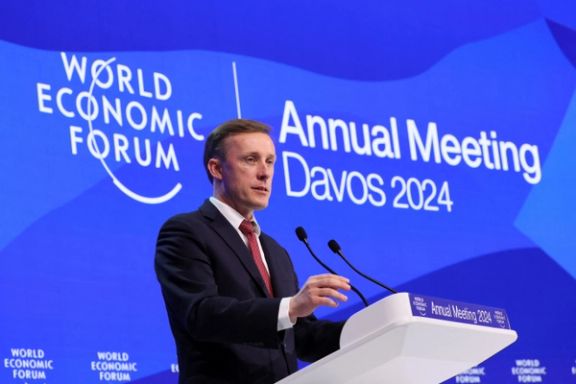
The United States will conduct more strikes against Iran's proxy militias after three countries were targeted in two days as the US vows to crack down on Iranian attacks on US facilities in the region.
“It began with strikes on Friday night but that is not the end of it," White House National Security Adviser Jake Sullivan told NBC News on Sunday following over 85 attacks on Iraq and Syria Friday night. "We intend to take additional strikes and additional action to continue to send a clear message that the United States will respond when our forces are attacked, or people are killed,” he added.
On Saturday night, in a joint operation with Britain, the United States initiated dozens of strikes against Iran's Yemeni proxy, the Houthis, which is currently blockading the Red Sea in a bid to force Israel into a ceasefire amidst the war in Gaza against the Iran-backed Hamas militia, sparked by Hamas's invasion of Israel on October 7. Around 1,200 mostly civilians were murdered and at least 250 more taken hostage.
As a result of the US support for Israel's right to defend itself, Iran's proxies have waged at least 160 attacks on US facilities across the Middle East since October 7.
The barrage of airstrikes were launched in response to an assault on a base in Jordan last Sunday which resulted in the deaths of three American troops and injuries to approximately 40 others.
“We do believe that the strikes had good effect and degrading capability to these militant groups that attacked us,” he said. “And we do believe that as we continue, we will be able to continue to send a strong message about the United States [and its] firm resolve to respond when our forces are attacked.”
The US military (CENTCOM) reported on Friday that in the initial round of strikes in Iraq and Syria against Iran's Islamic Revolutionary Guards Corps (IRGC) Quds Force and associated militia groups, more than 85 targets were hit.
Speaking separately to Fox News Sunday, White House national security spokesman John Kirby also dubbed Friday night's strikes the "first round" of action.
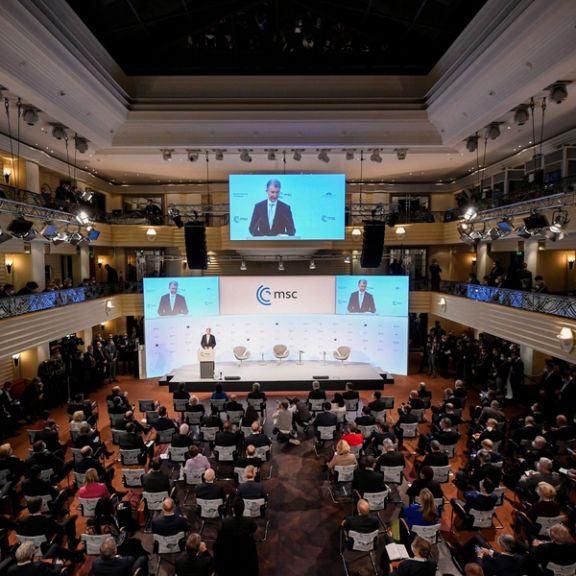
Iranian government is banned from the Munich Security Conference for the second year in a row as Tehran’s relation with the West reaches a breaking point.
Christoph Heusgen, head of the conference, said, "In the case of Iran, we are hearing from the German government and also from the Americans that there is no interest in talks. As things stand at the moment, we are only inviting Iranians from non-governmental organizations."
In addition to Iran, Russia and the German far-right party AFD have also not received invitations. Heusgen expressed skepticism regarding the prospect of meaningful dialogue with Russian President Vladimir Putin, opting instead to invite exiled politicians and representatives from non-governmental organizations.
The Munich Security Conference held an event with Iran Foreign Ministry thank-tank (IPIS) in October 2015 in Tehran, the same group that hosted a global Holocaust denial summit in 2006. Among those on the guest list, according to an invitation list seen by Iran International, was Qasem Soleimani, the slain commander of IRGC’s extraterritorial Quds Force. The MSC did not respond to Iran International’s requests for comment about co-hosting the event with the IPIS and the invitation of Soleimani to the conference.
Approximately 50 heads of state and government, along with around 100 ministers, are expected to attend this year's conference which is taking place from February 16 to 18.
The conference is globally renowned as one of the leading events to bring security policymakers together to discuss present and impending challenges. It comes at a time when Iran's proxy militias are causing havoc around the Middle East and major disruptions to global trade and shipping.
The decision to exclude Iran and Russia last year came amid ongoing global concerns. Iran's participation was halted following 2022 protests that saw hundreds killed, including numerous children, and thousands detained in connection to demonstrations. Similarly, Russia's exclusion was tied to its continued aggression against Ukraine.